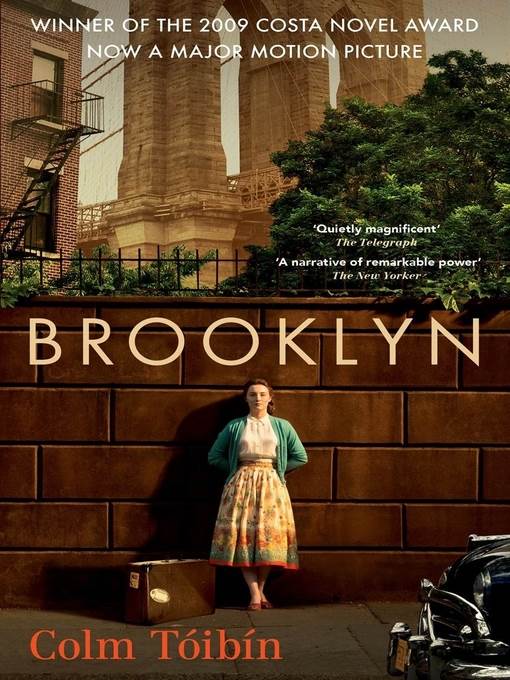
Brooklyn
کتاب های مرتبط
- اطلاعات
- نقد و بررسی
- دیدگاه کاربران
نقد و بررسی

March 23, 2009
Signature
Reviewed by
Maureen Howard
Colm Tóibín’s engaging new novel, Brooklyn
, will not bring to mind the fashionable borough of recent years nor Bed-Stuy beleaguered with the troubles of a Saturday night. Tóibín has revived the Brooklyn of an Irish-Catholic parish in the ’50s, a setting appropriate to the narrow life of Eilis Lacey. Before Eilis ships out for a decent job in America, her village life is sketched in detail. The shops, pub, the hoity-toity and plainspoken people of Enniscorthy have such appeal on the page, it does seem a shame to leave. But how will we share the girl’s longing for home, if home is not a gabby presence in her émigré tale? Tóibín’s maneuvers draw us to the bright girl with a gift for numbers. With a keen eye, Eilis surveys her lonely, steady-on life: her job in the dry goods store, the rules and regulations of her rooming house—ladies only. The competitive hustle at the parish dances are so like the ones back home—it’s something of a wonder I did not give up on the gentle tattle of her story, run a Netflix of the feline power struggle in Claire Booth Luce’s The Women
. Tóibín rescues his homesick shopgirl from narrow concerns, gives her a stop-by at Brooklyn College, a night course in commercial law. Her instructor is Joshua Rosenblum. Buying his book, the shopkeeper informs her, “At least we did that, we got Rosenblum out.”
“You mean in the war?”
His reply when she asks again: “In the holocaust, in the churben
.”
The scene is eerie, falsely naïve. We may accept what a village girl from Ireland, which remained neutral during the war, may not have known, but Tóibín’s delivery of the racial and ethnic discoveries of a clueless young woman are disconcerting. Eilis wonders if she should write home about the Jews, the Poles, the Italians she encounters, but shouldn’t the novelist in pursuing those postwar years in Brooklyn, in the Irish enclave of the generous Father Flood, take the mike? The Irish vets I knew when I came to New York in the early ’50s had been to that war; at least two I raised a glass with at the White Horse were from Brooklyn. When the stage is set for the love story, slowly and carefully as befits his serious girl, Tóibín is splendidly in control of Eilis’s and Tony’s courtship. He’s Italian, you see, of a poor, caring family. I wanted to cast Brooklyn
, with Rosalind Russell perfect for Rose, the sporty elder sister left to her career in Ireland. Can we get Philip Seymour Hoffman into that cassock again? J. Carol Naish, he played homeboy Italian, not the mob. I give away nothing in telling that the possibility of Eilis reclaiming an authentic and spirited life in Ireland turns Brooklyn
into a stirring and satisfying moral tale. Tóibín, author of The Master
, a fine-tuned novel on the lonely last years of Henry James, revisits, diminuendo, the wrenching finale of The Portrait of a Lady
. What the future holds for Eilis in America is nothing like Isabel Archer’s return to the morally corrupt Osmond. The decent fellow awaits. Will she be doomed to a tract house of the soul on Long Island? I hear John McCormick take the high note—alone in the gloaming with the shadows of the past
—as Tóibín’s good girl contemplates the lost promise of Brooklyn.
Maureen...

























دیدگاه کاربران